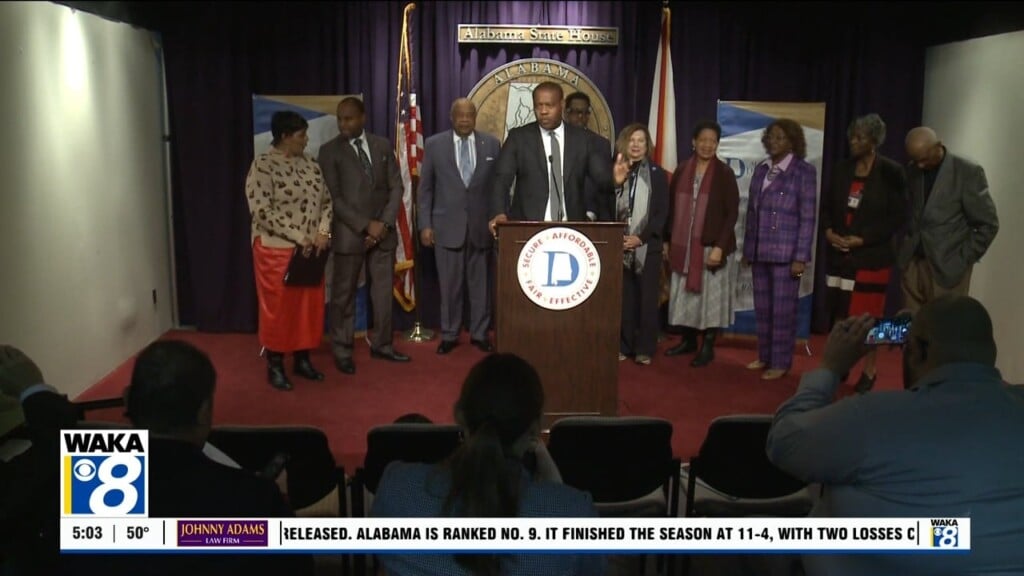Local men speak about prostate cancer following the death of Dexter King
News that the Rev. Martin Luther King Jr.’s son Dexter King died of prostate cancer Monday surprised and saddened many people. According to from the ADPH, about 1 in 8 men will be diagnosed with prostate cancer, and it is the most common cancer among men excluding skin cancer, which is why early detection is so important. The sad news of Dexter Scott King’s death from prostate cancer at the age of 62 hit especially hard for Reverend Allen Sims. He is now the 29th pastor of Dexter Avenue King Memorial Baptist Church in Montgomery. Dr. Martin Luther King Jr was the 20th.
“We were saddened to hear of his passing. He was pretty much a son of the South,” said Rev. Allen Sims. The third of the Kings’ four children, Dexter King was born in Atlanta on Jan. 30, 1961, and was named for the Dexter Avenue Baptist Church.
“Isn’t it ironic? That they would name their son after their church, the only church that he pastored here in Alabama, that he would name his son after this church. That again lets us know that he had a love for Dexter, and Dexter had a love for him as well, and so we’re saddened, but then again we’re honored to be part of the family’s legacy,” Rev. Allen Sims said.
Prostate cancer has been in the news a lot recently, as Hall of Famer and Cubs legend Ryne Sandberg announced on Monday that he has started treatment for metastatic prostate cancer. Defense Secretary Lloyd Austin spent two weeks in the hospital in the beginning of January, to treat complications from surgery for prostate cancer that he kept secret from senior Biden administration leaders and staff for weeks. According to the Urology Health Foundation, in 2023 it was estimated that 288,300 new cases of prostate cancer would be diagnosed in the U.S., and there would be 5,320 new cases of prostate cancer in Alabama. African-American men have a higher incidence of prostate cancer and are more than twice as likely to die of prostate cancer as white men.
Here in Alabama, our Commissioner of the Department of Veterans Affairs Kent Davis had his own battle with prostate cancer. “Mentally it can be a challenge. When that doctor looks you in the face and says ‘ You have cancer ‘ – Wow. It’s a blow to your psyche,” Commissioner Kent Davis said. His father and brother both had it at a young age, so Davis started having regular PSA tests at age 40. He was diagnosed in 2019 and says regular testing is why he is alive today. “Turned out I had a very aggressive form -that was the bad news. The good news is that they caught it very, very early so when I say testing is important -and for men to get tested regularly – it literally saved my life.”
Davis opted for surgery and says recovery was easier than he expected – he was only out of work for about a week and a half. He especially encourages military veterans to get checked every year.
“It’s especially disproportionate in Veteran men and a lot of that comes from toxic exposures during their military service so I not only stress to middle aged men but especially to veterans, you need to get checked for all forms of cancer but especially prostate cancer, ” Commissioner Davis says.
After he beat prostate cancer, Davis fought stage three lymphoma last year and now has a clean bill of health. He feels its important to be open about his cancer battles so he can help others. “There is a stigma amongst veterans, sometimes a mentality that ‘ I’m tough, I can handle anything and my body is strong ‘ and there’s just a little bit of a stigma about going to the doctor and getting checked regularly. Twice those regular checkups have saved my life, I am convinced. For more information about the symptoms of prostate cancer, go to alabamapublichealth.gov. The Urology Health Foundation travels across Alabama on weekends to carry out free prostate cancer screenings. No appointments or insurance is needed. For more information about their schedule for 2024, https://www.urologyhealthfoundation.org/






